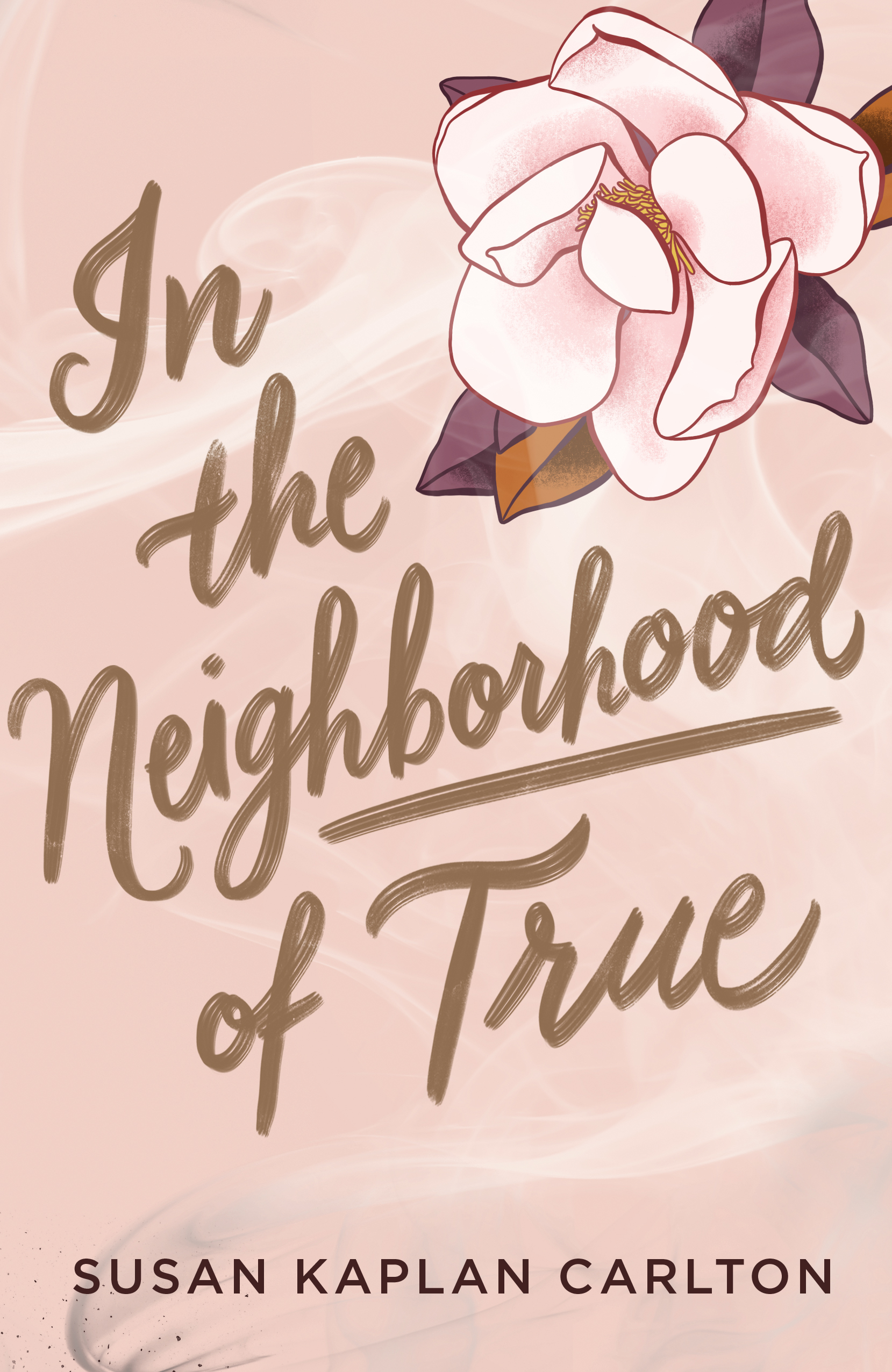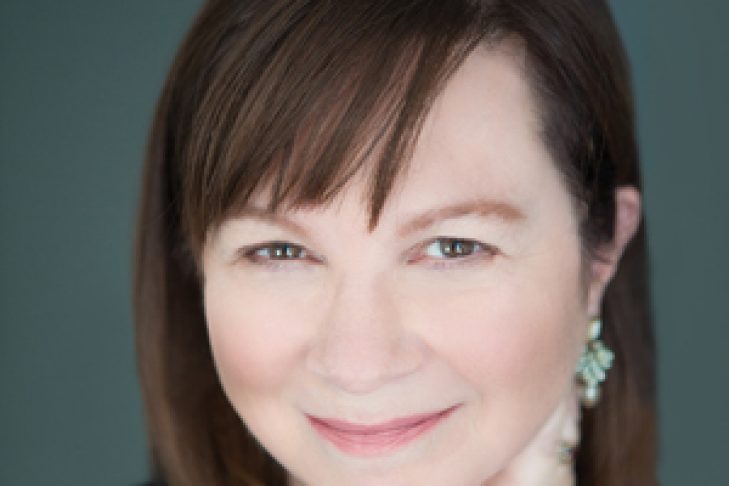When Susan Kaplan Carlton and her family moved to Atlanta in the early 2000s, they joined the iconic Reform Jewish congregation known as “The Temple.” Kaplan remembers her daughter getting into the car one day after Hebrew school and telling her that the classroom she was in had once been blown up along with The Temple’s sanctuary. Kaplan did some investigating and learned that white supremacists had bombed her new congregation in 1958.
The bombing is the inciting incident of Kaplan’s recently published coming-of-age tale, “In the Neighborhood of True.” At the center of this accomplished novel is a fictional bombing of a temple in Atlanta that evokes the 1958 incident. Kaplan tells the story leading up to the bombing through 17-year-old Ruth Robb, who has moved from New York to Atlanta. She, her mother and two sisters are grieving their father and husband, Arthur, who died suddenly of a heart attack. The Robbs start over in Atlanta in 1958, where they have close family and move into their well-to-do maternal grandparents’ carriage house.
Ruth’s father was Jewish, and her mother is a Jew by choice. Ruth soon learns that life for a Jew is decidedly different in the South. She quickly becomes caught up in a social whirlwind of debutante balls, fancy tea parties and etiquette classes. To be accepted by the popular girls, she keeps her Jewish identity secret. Yet at her mother’s behest, she also attends temple on Saturday mornings, where she begins to take an interest in the burgeoning civil rights movement.
At the same time, Ruth also has a crush on Davis, a charming, handsome boy at the center of her new social circle. Yet Max, a college-age civil rights activist whom she meets at her temple, also intrigues her. Her double life falls apart when she can no longer be a bystander. In the wake of the temple bombing, Ruth quickly understands she has information about the crime. This hard realization forces her to figure out who she is and what she stands for. In the end, Ruth takes the ultimate risk when she testifies in court about what she knows.
Kaplan recently talked to JewishBoston about her new novel and the perennial lessons of an anti-Semitic crime that happened over 60 years ago.
The book opens with an epigraph that includes the line, “When the wolves of hate are loosed on one people, then no one is safe.” How does this quote reflect what happens in the novel?
That’s a quote from a front-page editorial written by Ralph McGill after the bombing, who went on to become the editor of The Atlanta Journal-Constitution. It was part of a series of editorials that won a Pulitzer Prize. His words resonate 60 years later. Hate is still on the loose and none of us is safe because of that. It’s horrifying that this novel can still feel contemporary in so many ways.
The phrase “in the neighborhood of true” appears a few times in the novel. What’s the difference between something close enough to the truth and an outright lie? Is it ever OK to not tell the whole truth?
I came across that phrase long before I wrote the book, and it stayed with me. I loved living in the South, but there’s a civility there you can’t always trust. The idea that everything was a compliment and beautiful and lovely can belie the hatred within. Some situations are sometimes so clearly outside the boundaries that you have to tell the truth. Ruth discovers some truths that are unequivocal to her.

Ruth initially leads a double life in Atlanta. What are the implications of her hiding her Jewishness?
At first, she simply chooses not to volunteer that she is Jewish. It’s a slippery slope of denial. No one directly asks her and she doesn’t feel the need to insert her faith into conversations. The reality is that we can’t live a double life. And as the hatred around her became harder to ignore, her own lies of omission also became harder to ignore.
You portray early Jewish involvement in the civil rights movement through the fictional Rabbi Selwick and Max. What moved Jews to become so active in the movement?
I grew up in San Francisco in the 1970s in a very Jewish home, with an emphasis on the ish. In my family, Jewishness and social justice were braided together. I was very moved by the history of The Temple in Atlanta, which has an authentic, well-earned place early on in the civil rights movement. In researching the book, I read through the sermons of Rabbi Jacob Rothschild [the rabbi at The Temple at the time of the bombing], and some of his archived correspondence at Emory University. He was an early proponent of civil rights. I also interviewed Rabbi Rothschild’s wife, who is in her 90s. She’s a great holder of The Temple’s civil rights legacy.
There are people who fought the fight for equality before the Brown v. Board of Education Supreme Court case in 1954. The bombing happened 10 years before Selma, and things were already going on.
Ruth’s family tells her she did the right thing by speaking up, but she’s unsure if she made a difference in the end. Do you think she did?
I hope people take away that Ruth is standing up, but she worries if she stood up enough. What she did was really valuable. When I think of the youth activism of the Parkland kids and Greta Thunberg, it’s so powerful. They have such a voice and platform. Bravery, however, doesn’t always look like that. It can be quieter, which it is for Ruth. Ruth took the risk she needed to take. She realizes that the greater risk is not being able to live as yourself.
This is a book about losses. How do each of these losses—the death of a parent, the loss of the temple, losing a first love—affect the characters?
This is definitely a book about loss. There’s the loss of innocence, the loss of love and the loss of a father, who was Ruth’s North Star. It can be a cliché to have a dead parent in a YA book, but I felt I needed Ruth to be wounded and raw. It also explains how the family finds itself in Atlanta. That loss of the stability of her former life in New York, as well as the loss of a parent she felt so connected to, makes her very susceptible to wanting to fit in.
What do you want people to take away from your book?
I want people to take away the idea of hope. As individuals, we have moments that can lead to good. One of the questions that came to me as I was writing the book was, what if we fall so in love with a place or a boy that we lose a piece of who we are? There are times, even as adults, that we might briefly deny a piece of ourselves. I hope the book is a reminder to be true to who we are. I love at the end when Ruth’s grandmother tells her that when hatred shows its face, you need people to make a little ruckus. I want people to make a little ruckus.
This interview has been edited and condensed.
Susan Kaplan Carlton will be in conversation with writer Linda K. Wertheimer on Thursday, Oct. 17, at Newtonville Books. Find more information here.



